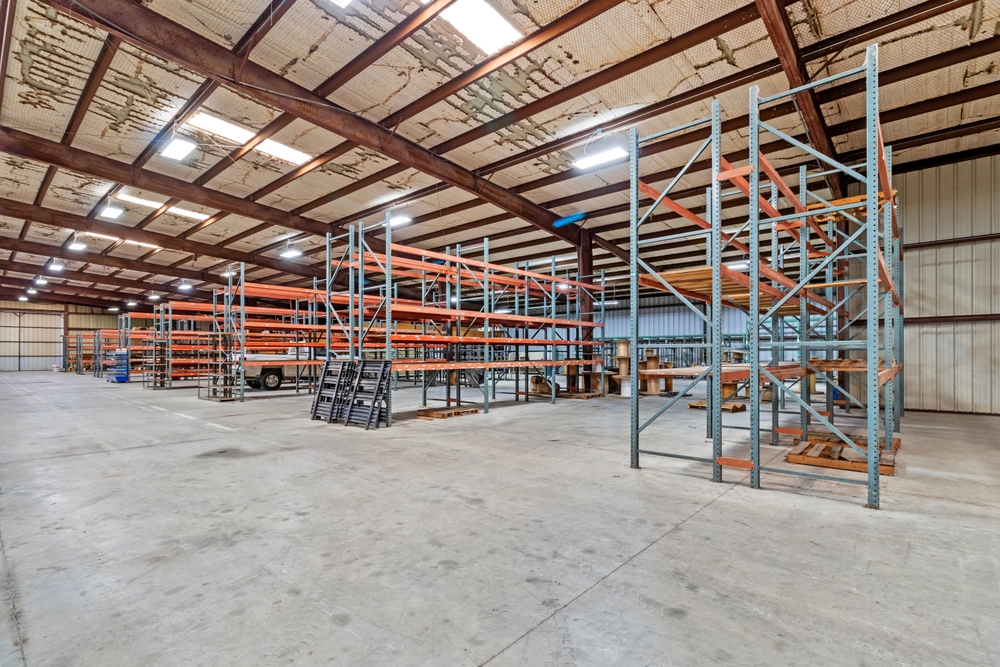If you’re a landlord or property manager, and you have some unoccupied commercial properties in your portfolio, then you may still have to pay business rates on these properties. However, it may be possible to get an exemption.
In this post we’ll discuss when these exemptions apply, and let you know how you can apply. We’ll also explore some other ways you can reduce costs on your unoccupied property while keeping it safe until you find a suitable tenant.
If you’ve any questions or concerns about your insurance needs, we have a team of experts on hand to assist. Contact us on 020 8290 9080 or email business@anthonyjones.com.
What Business Rates Do I Need To Pay On Commercial Properties?
Business rates are a tax paid on commercial properties. Business rates apply to most non-domestic properties, including:
- Shops
- Offices
- Pubs and bars
- Factories
- Warehouses
- Holiday rental homes and guest houses
Certain properties are exempt from paying business rates, including:
- Buildings used for agricultural purposes.
- Buildings used to train, or provide welfare to, people with disabilities.
- Any buildings registered for public religious worship.
Read a full guide to business rates on the government’s website.
Do I Have To Pay Business Rates on Empty Properties?
In the UK, empty commercial properties are not automatically exempt from paying business rates. However, you can apply for a three month exemption from paying business rates on your empty commercial property.
How To Apply For Business Rate Exemption on an Empty Property
You need to contact your local council.
Let them know that your commercial property is vacant, or about to become vacant, and they will let you know the rules for empty property relief in your area.
Can I Get an Empty Property Business Rate Relief Extension?
Certain types of properties are eligible for an extended period of empty property relief:
- Industrial premises, such as warehouses, can get up to six months of empty property relief.
- Listed buildings can be exempt for as long as they remain unoccupied.
- If your commercial property has a rateable value that’s £2,900 or less, you can be exempt from paying business rates until you find a tenant.
- If the property is owned by a charity, or if the next tenant will use the property for charitable purposes, you can be exempt from paying business rates until the property is occupied again.
- Similarly, buildings owned or used by community amateur sports clubs can get an extension for as long as they are unoccupied, so long as the next occupier uses the premises for the same purpose.
How to Avoid Business Rates on an Empty Property
The business rate exemptions apply to the property, rather than to the landlord. This means that you can’t skirt paying business rates through transferring ownership of the building from one person to another until you find a tenant. Unless you meet the criteria for exemption we outlined above, you will have to pay business rates on your empty property after three months.
However, there are some ways you might avoid paying business rates on your unoccupied commercial property:
Let a Charity or a Religious Organisation Use Your Premises
Charities can get up to 80% off their business rates. Some local councils offer additional “discretionary relief”, meaning they will give charities a 100% exemption. And as we mentioned above, buildings used for religious purposes can also be exempt from paying business rates.
So, if you think your commercial property will be empty for a while, you could save on business rates through leasing the building to a charity, or a religious organisation.
Just bear in mind that, to qualify for exemption, the occupier will have to use the building entirely for religious or charitable purposes.
Incapable of Occupancy?
If your property is currently unoccupied following a fire or a flood, then you could claim that the building is “incapable of occupancy”. In this case, you may not have to pay any business rates until you have made the necessary repairs to make it suitable for occupation again.
Property Guardians
If you think your commercial property will be empty for the foreseeable future, then you could change it from a commercial property to a residential property.
Enlist “property guardians” to temporarily live in the building, and you will not have to pay any business rates for as long as they live there. Instead, you will have to pay council tax, which is usually significantly cheaper than paying business rates.
Secure and Take Care of Your Unoccupied Property
Unoccupied properties may be more vulnerable than occupied properties:
- Thieves and vandals may be more likely to target an unoccupied property over an occupied property.
- Small issues can rapidly snowball into major problems when there’s nobody around to intervene. For example, a leaking pipe could escalate into a serious escape of water problem.
This is why it’s important to take steps to secure your commercial property for as long as it stays unoccupied:
- Property guardians and onsite security staff can help to keep an eye on things.
- Invest in extra security features, including CCTV and automatic floodlights, to deter vandals and burglars.
- Consider disconnecting the water, electricity, and other utilities (but note that this might expose you to additional risks).
Get Dedicated Business Insurance For Your Commercial Property
If your commercial property is currently unoccupied, a standard commercial property insurance policy may not cover you.
At Anthony Jones, we can help you get comprehensive unoccupied commercial property insurance at a competitive price.
For more information, and a free quote, call us on 020 8290 9082, or email business@anthonyjones.com.


